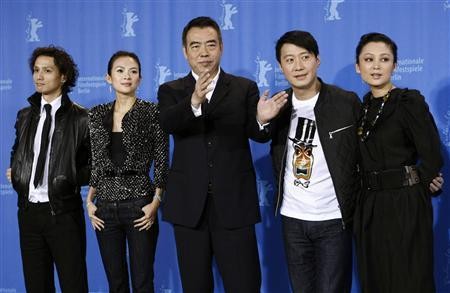Top Chinese director to movies "Monk Comes Down the Mountain" and "Farewell, My Concubine" Chen Kaige said that the use of a western crew helped him "reach an advanced international level from the technology and industry perspective."
Chen said that while the Chinese movie industry is still doing great, local filmmakers must raise standards if domestic films plan on competing with Hollywood.
The director, who won the Palme d'Or in 1993 for "Farewell, My Concubine," spoke to The Hollywood Reporter during a news conference held to launch his latest film, "Monk Comes Down the Mountain."
"That is also the reason that we used a lot of western crew for this film. I want their ability to get rid of the disadvantages and challenges that China faces. I am trying to reach an advanced international level from the technology and industry perspective," said Chen.
"Monk Comes Down the Mountain" is an adaptation from a Xu Haofeng novel, and is about a Taoist monk who returned to secular life.
The movie, featuring Aaron Kwok, Chang Chen, Chiling Lin, Wang Baoqiang and Vanness Wu, opened in Beijing on July 2. The Hollywood Reporter also said that Jaycee Chan, son of megastar Jackie Chan, remained in the movie even after being blacklisted.
It is important for Chinese films to focus on substance because it will always be difficult for local movies to have a technological advantage over Hollywood, said Chen.
"Even after a few decades, we can't reach it because America is a technology-leading country. The whole society is focused on technology. This is not China's strong point. We should make the audiences to watch films that are related to their lives," added Chen.
Chen's most recent movie aims to update the martial arts genre.
"There is big difference between this film and the traditional martial arts film. I have strong feeling that after decades, traditional martial arts films need to reform or change. Otherwise, the audience will be tired. Today's martial arts must be connected with the modern technology. It must have the new visual effect element to connect with the martial arts," he said.
The post-production for this movie involved international talent for photography, visual effect, musical and editing.
"There are two reasons that I was attracted to this project. First is the story. The second reason was the structure. It is a big challenge for me because I have to shape many different characters but they only appear at some stage of the film," Chen said.




























